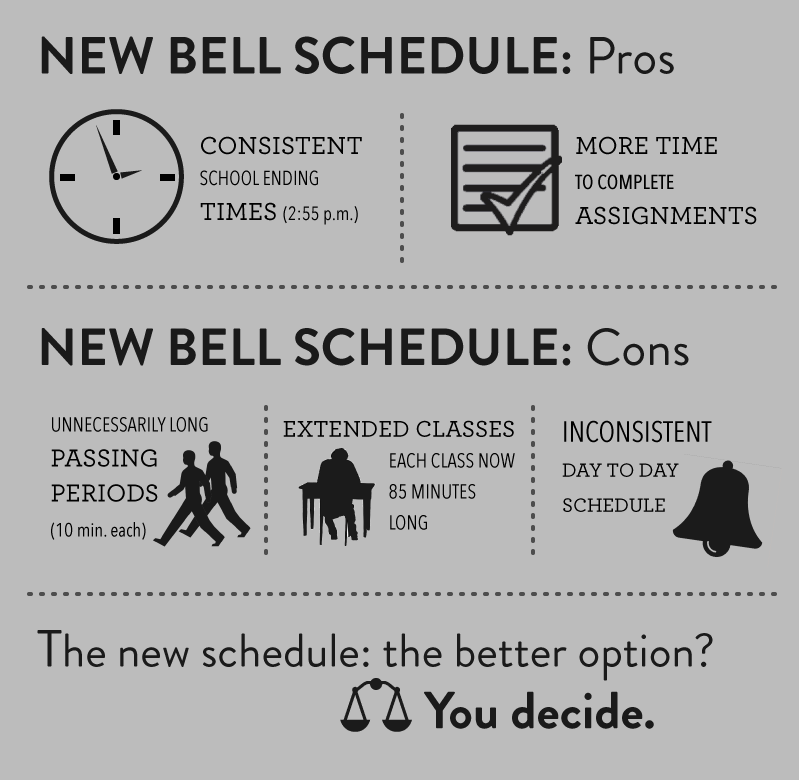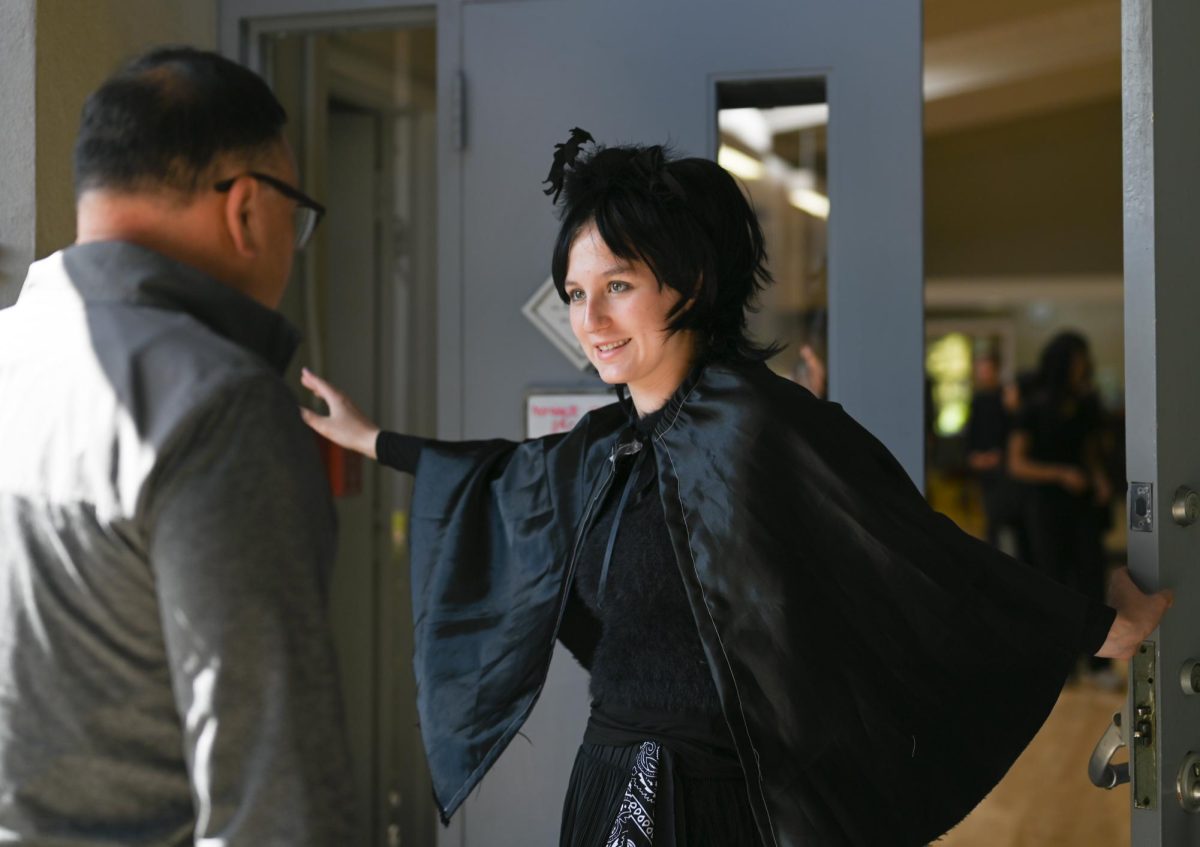Upcoming bell schedule adjustment unnecessary
November 29, 2015
During a school assembly on Oct. 5, Daniel Hudkins, the Director of Information Technology Service and Support for the Upper School, introduced a new schedule that will run a trial phase in January of 2016. The administration alongside the technology department created this schedule to try to reduce student stress and overall workload, but I can see a few flaws in it.
Some of the few good things that we will experience in January is the consistent time that school ends. Every school day ends at 2:50 p.m. It’s easy to remember and an improvement from our current schedule, which varies from day to day. Since every class does not appear on our schedules daily, we have an extra day to complete assignments. According to Hudkins, all students have long lunch every other day and three to four classes per day, giving students even more additional time to finish homework and projects.
With all good things come the bad. The pilot bell schedule will include seven minute passing periods between every class. This is too much time to get from class to class. I, alongside many other students, find the current five minutes we have now perfectly fine. Yes, it’s a mission to get from upstairs Nichols to upstairs Shah, but the administration doesn’t understand that the teachers in Shah and Nichols understand our struggle. Never have I ever experienced chastisement for arriving late to a class in those two buildings.
Most importantly, the actual class structure of the new schedule concerns me. Even during our current long block periods, I, and many others around me, struggle to stay attentive. Having 85-minute classes would just aggravate the problem. In addition, the new four-day rotating block schedule means that the first Friday will take place on a Monday schedule. Every four days, the schedule cycles, potentially leading to confusion. Although students might find this new format interesting, since every week will seem pretty different, the schedule’s inconsistency will become exasperating.
After the trial period, the administration will take feedback from students, parents and faculty. I expect this new schedule to receive the same responses as PCR. Everyone will initially experience difficulties with it, but eventually we’ll find it amenable. At the end of the day, I do hope that this schedule follows through on what it promises: less stress and a smaller, overall nightly workload.
This piece was originally published in the pages of the Winged Post on November 20, 2015.



















![“[Building nerf blasters] became this outlet of creativity for me that hasn't been matched by anything else. The process [of] making a build complete to your desire is such a painstakingly difficult process, but I've had to learn from [the skills needed from] soldering to proper painting. There's so many different options for everything, if you think about it, it exists. The best part is [that] if it doesn't exist, you can build it yourself," Ishaan Parate said.](https://harkeraquila.com/wp-content/uploads/2022/08/DSC_8149-900x604.jpg)




![“When I came into high school, I was ready to be a follower. But DECA was a game changer for me. It helped me overcome my fear of public speaking, and it's played such a major role in who I've become today. To be able to successfully lead a chapter of 150 students, an officer team and be one of the upperclassmen I once really admired is something I'm [really] proud of,” Anvitha Tummala ('21) said.](https://harkeraquila.com/wp-content/uploads/2021/07/Screen-Shot-2021-07-25-at-9.50.05-AM-900x594.png)







![“I think getting up in the morning and having a sense of purpose [is exciting]. I think without a certain amount of drive, life is kind of obsolete and mundane, and I think having that every single day is what makes each day unique and kind of makes life exciting,” Neymika Jain (12) said.](https://harkeraquila.com/wp-content/uploads/2017/06/Screen-Shot-2017-06-03-at-4.54.16-PM.png)








![“My slogan is ‘slow feet, don’t eat, and I’m hungry.’ You need to run fast to get where you are–you aren't going to get those championships if you aren't fast,” Angel Cervantes (12) said. “I want to do well in school on my tests and in track and win championships for my team. I live by that, [and] I can do that anywhere: in the classroom or on the field.”](https://harkeraquila.com/wp-content/uploads/2018/06/DSC5146-900x601.jpg)
![“[Volleyball has] taught me how to fall correctly, and another thing it taught is that you don’t have to be the best at something to be good at it. If you just hit the ball in a smart way, then it still scores points and you’re good at it. You could be a background player and still make a much bigger impact on the team than you would think,” Anya Gert (’20) said.](https://harkeraquila.com/wp-content/uploads/2020/06/AnnaGert_JinTuan_HoHPhotoEdited-600x900.jpeg)

![“I'm not nearly there yet, but [my confidence has] definitely been getting better since I was pretty shy and timid coming into Harker my freshman year. I know that there's a lot of people that are really confident in what they do, and I really admire them. Everyone's so driven and that has really pushed me to kind of try to find my own place in high school and be more confident,” Alyssa Huang (’20) said.](https://harkeraquila.com/wp-content/uploads/2020/06/AlyssaHuang_EmilyChen_HoHPhoto-900x749.jpeg)










